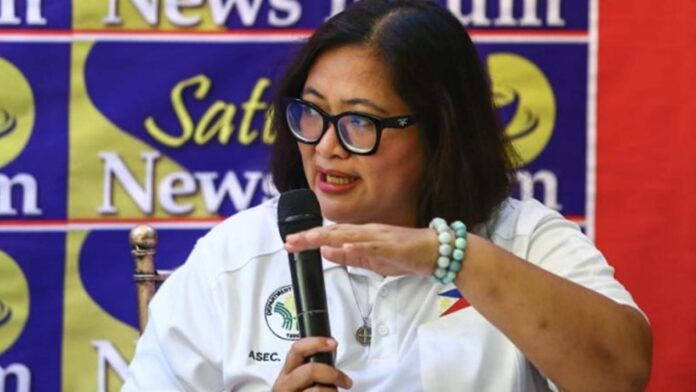The Department of Agriculture (DA) is looking for at least 40 more sites or “Kadiwa” stores in the next two months that will sell rice at PHP29 per kilogram (kg).
Agriculture Assistant Secretary Genevieve Guevarra said the sites for the “P29 Rice Program” will be in Malabon, Navotas and Mandaluyong in Metro Manila, Cebu province, and Mindanao.
“Dito po sa Luzon, magkakaroon tayo ng additional pa na 10 to 20 (Here in Luzon, we will have 10 to 20 additional sites) for August to September,” she said at the Saturday News Forum in Quezon City.
“There will be centers and stores depende sa laki (ng lugar), kasi usually ang provision natin na puwede mag store, malaki parking, meron din iba puro stores lang (depending on the area, because usually, there should be a large parking area in sites that have storage spaces, while other areas are just stores only),” the DA official added.
The program sells subsidized rice for PHP29 per kg to the vulnerable sectors, including members of the Pantawid Pamilyang Pilipino Program, senior citizens, solo parents and persons with disabilities.
The DA on Friday launched the large-scale trial for program in 10 Kadiwa stores: Bureau of Animal Industry and National Irrigation Administration in Quezon City; Bureau of Plant Industry in Malate, Manila; Food Terminal Inc. in Taguig City; Philippine Fiber Industry Development Authority in Las Piñas; Bayani Fernando Central Terminal and Barangay Fortune in Marikina; and sites in Caloocan, Valenzuela, and City San Jose del Monte, Bulacan.
Kadiwa stores sell other agricultural produce at cheaper prices as farmers and producers directly deal with consumers.
Beneficiaries can purchase the subsidized rice every Friday, Saturday and Sunday, with a limit of 10 kilos per household in five-kilo increments each month.
Each trial site is expected to support 1,500 families per week, or around 60,000 households monthly in all 10 sites.
“Ang pinaka successful ay ‘yung sa San Jose del Monte, Bulacan dahil na-ubos 100 sacks na tig-50 kilos (The most successful was the San Jose del Monte, Bulacan site, which sold out 100 50-kilo sacks),” Guevarra noted.
In total, she said the stores were able to sell more than 25,000 kilos, with a revenue of around PHP750,000 as of Friday.
“Kaya ito pino-promote namin, we’re hoping in the coming days mas marami pang mag-avail lalo na ngayong weekend. Tinitingnan natin kung maraming bibili para next week ay makapag-institutionalize tayo ng modifications (We are promoting this because we are hoping that more beneficiaries would avail, especially this weekend. We are looking if many will buy so that we can institutionalize modifications by next week),” Guevarra said.
The DA target for now is 100 sacks per day.
Guevarra assured that the program is sustainable as they have sufficient stocks.
“Meron po tayo 2,500 metric tons [stock], so doon po sa computation natin (We have 25,000 metric tons in stock, and based on our computation), we can sustain this in the next three to four months,” she said.
The rice stocks are from Batangas and Quezon provinces in Luzon, and some from Visayas and Mindanao.
Overall, the P29 program targets to benefit 30 percent of the population, or around 6.9 million households nationwide. (PNA)






